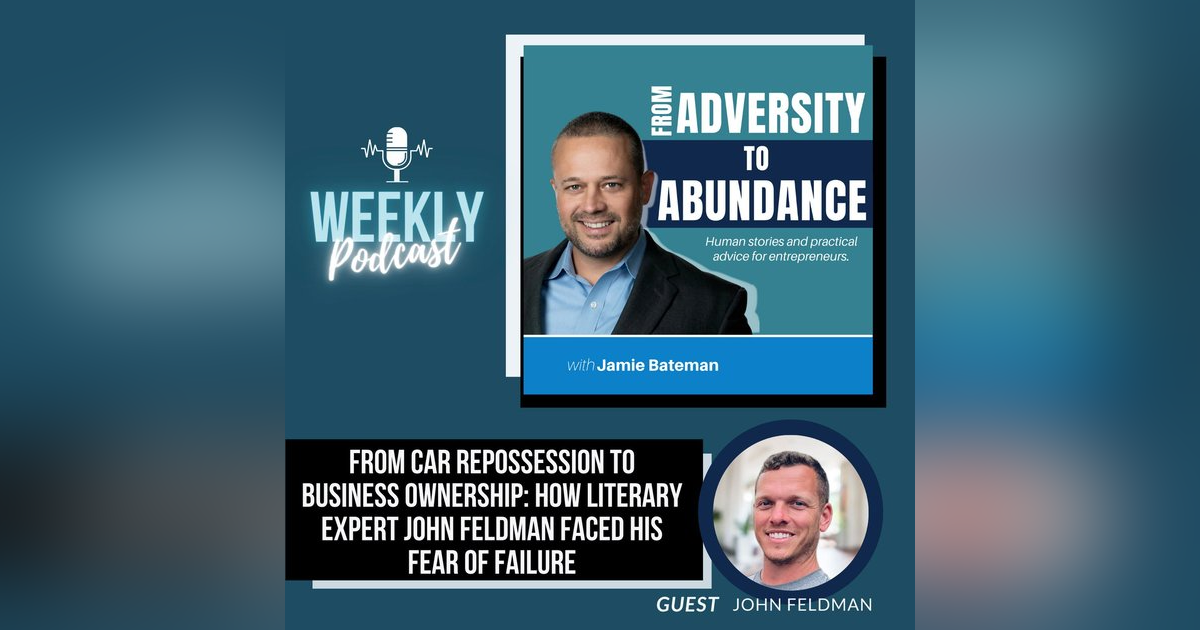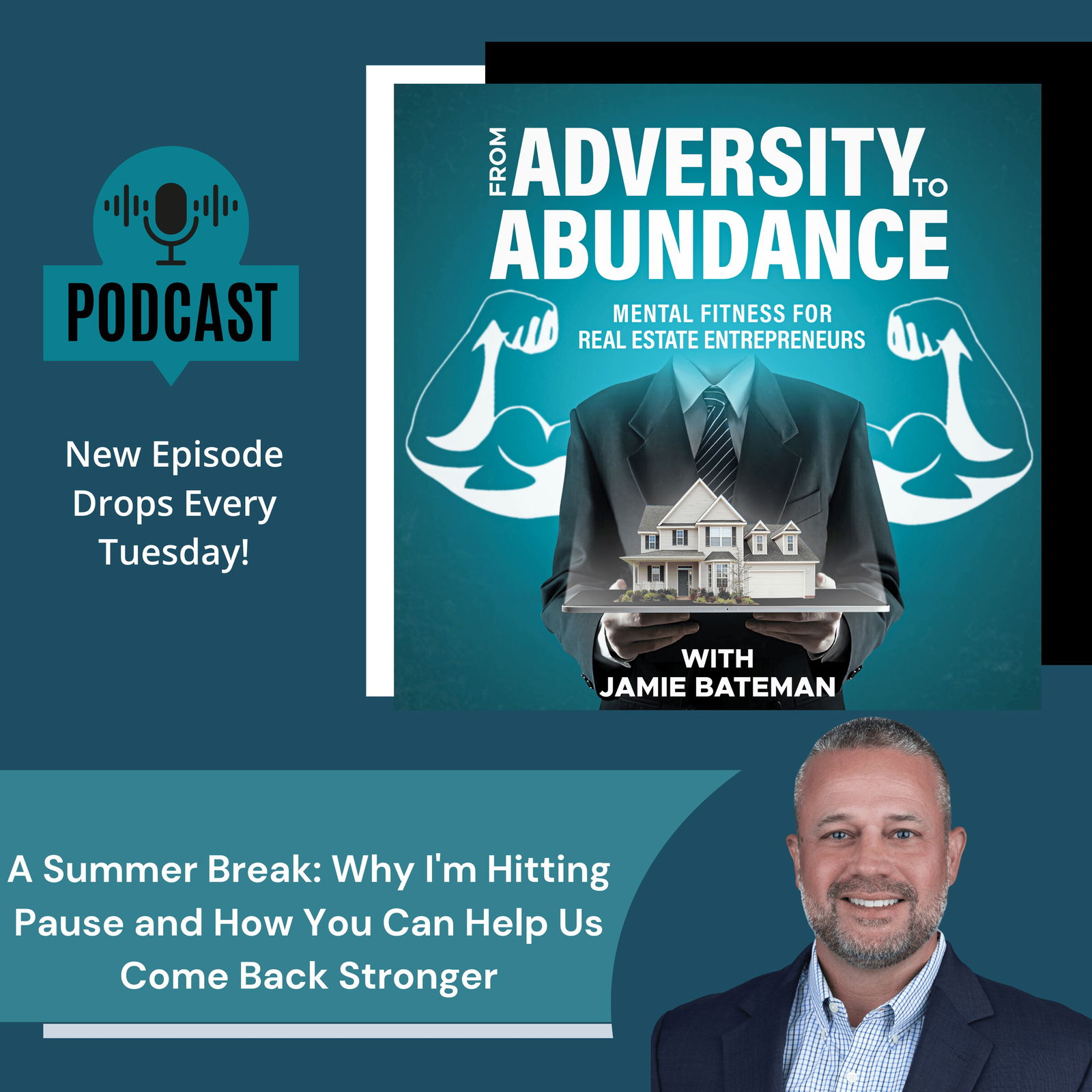From Car Repossession to Business Ownership: How Literary Expert John Feldman Faced His Fear of Failure


Meet John Feldman, a prolific entrepreneur who's turning heads in the literary world. With an extensive background in sociology and marketing, his journey began as a curious college student exploring the realm of storytelling. Today, he is the Founder and CEO of Visionary Literary, an avant-garde publishing company. John now applies his knack for creative thinking in helping others pen their narratives, successfully combining his love for writing with the practicality of entrepreneurship.
"It doesn't mean if you do something once or even twice, it doesn't mean that it's not going to work. It just means that you have to find a way to where you can make that work within your abilities."
In this episode, you will be able to:
- Visit Visionary Literary's website (www.visionaryliterary.com) to learn more about their ghostwriting and book publishing services.
- Contact Visionary Literary to discuss your book idea and how they can help you bring it to life.
- Explore the various publishing packages and services offered by Visionary Literary to find the one that best suits your needs.
- Check out Visionary Literary's blog for helpful articles and resources on writing, publishing, and promoting books.
- Consider signing up for a consultation with John Feldman to discuss your writing goals and how Visionary Literary can support you in achieving them.
- Explore additional resources recommended by Visionary Literary, such as writing courses, editing services, or book marketing tools, to enhance your writing and publishing experience.
Books and Resources
Shoe Dog: A Memoir by the Creator of NIKE
Zero to One: Notes on Startups, or How to Build the Future
The Hard Thing About Hard Things: Building a Business When There Are No Easy Answers
Traction: Get a Grip on Your Business
Connect with John Feldman:
WEBSITE: https://visionaryliterary.com/
LINKEDIN: https://www.linkedin.com/in/john-feldman/
Haven Financial:
https://www.myfinancialhaven.com/jamiebateman/
ATTENTION:
Unlock the secrets to a transformative life with “From Adversity to Abundance: Inspiring stories of Mental, Physical and Financial Transformation”. Buy your copy now and embark on a journey from challenges to triumphs!
AMAZON: https://www.amazon.com/dp/B0CGTWJY1D?ref_=pe_3052080_397514860
Connect with us
WEBSITE: https://www.adversity2abundance.com
Leave us a rating or review: https://www.adversity2abundance.com/reviews/new/ or here
Got comments, feedback or suggestions? We’d love to hear it! https://www.adversity2abundance.com/contact/
Follow From Adversity to Abundance Podcast
FACEBOOK: https://www.facebook.com/profile.php?id=100089126144055
INSTAGRAM: https://www.instagram.com/adversitytoabundancepodcast/
LINKEDIN: https://www.linkedin.com/company/89949391/admin/feed/posts/
YOUTUBE: https://www.youtube.com/@FromAdversity2AbundancePodcast
Connect with Jamie
BOOK: From Adversity to Abundance: Inspiring Stories of Mental, Physical, and Financial Transformation
LINKEDIN: https://www.linkedin.com/in/jamie-bateman-5359a811/
TWITTER: https://twitter.com/batemanjames





